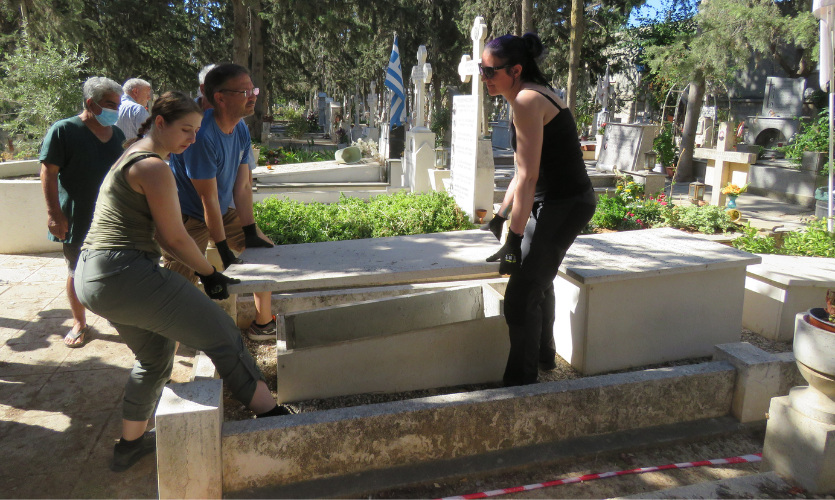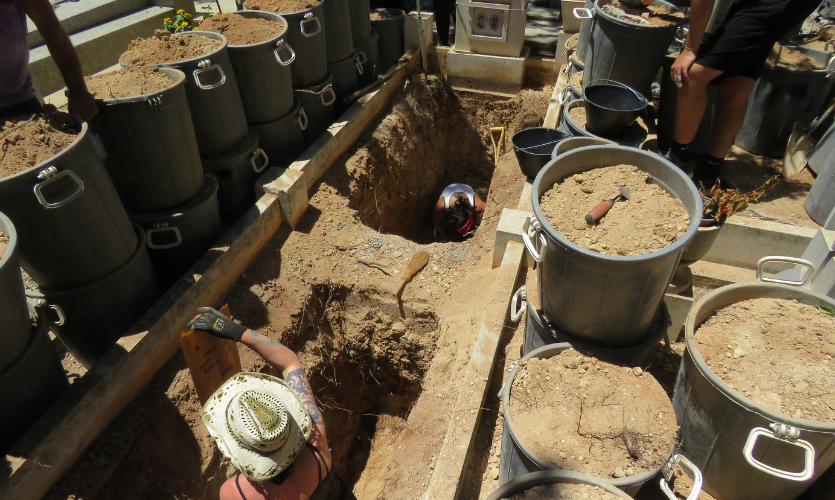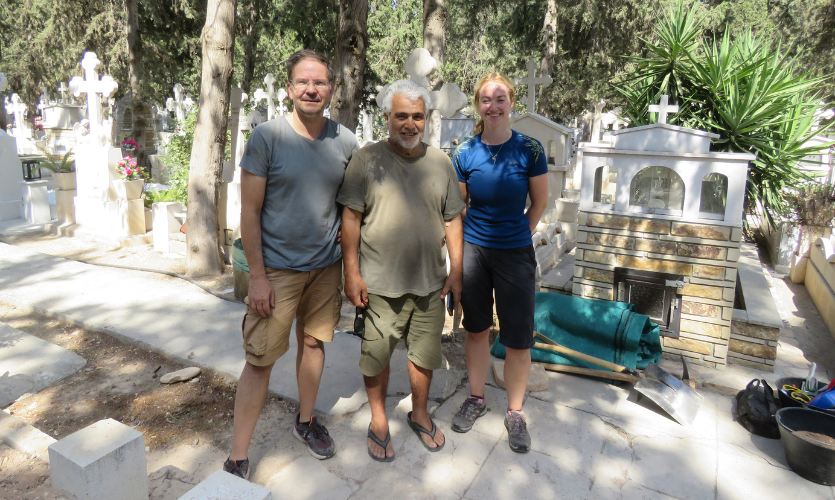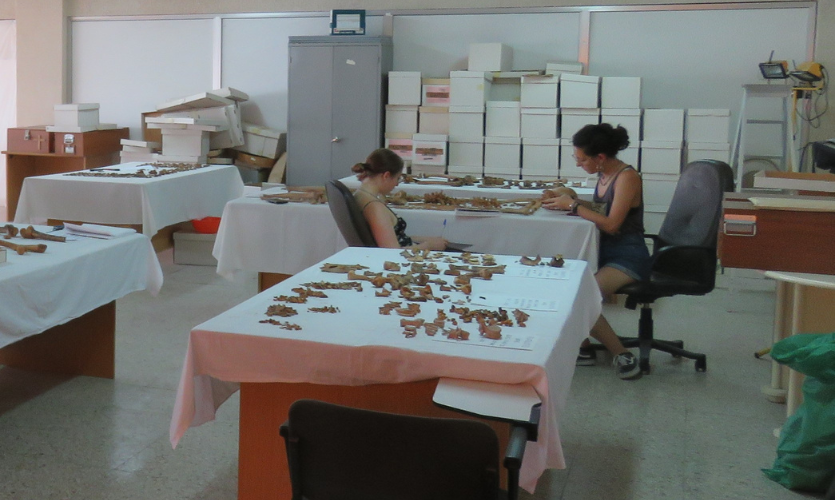Supporting reconciliation in Cyprus through the recovery of war missing
Families in Cyprus have been able to finally lay their relatives to rest thanks to a humanitarian project involving anthropologists from LJMU who have recovered and identified remains from multiple war graves.
The team from the School of Biological and Environmental Sciences, led by Dr Constantine Eliopoulos in collaboration with Cypriot scientists, visited the country this summer to excavate five graves.
The graves were known to contain the remains of Greek-Cypriots and Turkish-Cypriots who were killed during the conflicts between 1964 and 1974.
Closure for families
Dr Eliopoulos, a Forensic Anthropologist specialising in the investigation of mass graves, said: “I’ve been involved for the past 23 years in grave excavations in Cyprus as part of the Government’s identification programme. As a result, my colleagues and I have been able to identify the remains of more than 300 armed conflict victims who have been returned to their families, providing important answers about the circumstances of their deaths and to allow them to have closure after many years of uncertainty.”
Summer 2022 investigations
During this summer’s investigations, Dr Eliopoulos with fellow LJMU scientists Dr Matteo Borrini and Dr Satu Valoriani, as well as Forensic Anthropology MSc students Giada Steiger and Raffaella Minella, were able to exhume and identify the remains of Greek-Cypriots who were killed during the bombing of a temporary field hospital in the Paphos area in 1964.
They also recovered the remains of two Turkish-Cypriots who were killed during the 1974 war and were exhumed from unmarked graves in Limassol.
Finally, the team excavated a mass grave containing the remains of three Greek-Cypriots who were killed in the days of the military coup in July of 1974.
‘A privilege’ to be involved in this project
In September, Dr Eliopoulos returned to Cyprus with Melissa Rankin, Research Fellow at LJMU’s Faculty of Health and Forensic Anthropology MSc graduate, to recover a fourth victim located close to the mass grave that was excavated earlier in the summer.
Melissa Rankin said: “It was a privilege to be invited to work with Dr Eliopoulos and the Cyprus Government on such an important humanitarian project. To be able to provide answers and closure to the victim’s families is an honour and something I will never forget. This experience allows me to reflect on my current research [regarding colorectal cancer prevention] and reminds me of the importance of preserving human life in any way possible.”
‘Serving the international community through science’
Dr Eliopoulos added: “These most recent missions by LJMU experts are indicative of our institution’s commitment to serving the international community through science.”
Since 2010, the identification program has been administered by the Office of the Presidential Commissioner for Humanitarian Affairs. During this period, a series of investigations have taken place including the excavation of the crash site of a military aircraft downed by friendly fire, the mass graves that were the result of the bombing of a psychiatric hospital in Nicosia, as well as the graves of individuals who were killed in the days of the military coup in July of 1974.
Peace and reconciliation
Xenophon Kallis, Special Advisor to the Presidential Commissioner, said: “We are thankful and very grateful to the scientists of LJMU, especially to Dr Eliopoulos, for their contribution and professionalism to our humanitarian efforts. We hope our cooperation will continue and deepen for the sake of the families concerned.”
The Republic of Cyprus program of exhumation and identification of remains aims to give answers to the families of the victims from both Greek-Cypriot and Turkish-Cypriot communities.
It also allows the families to undertake proper burials of the remains of their loved ones according to religious and social customs of the respective communities, supporting reconciliation and peace efforts in the country.
Studying at LJMU
Find out more about studying with the Faculty of Science at LJMU.
Forensic Anthropology MSc students Giada Steiger and Raffaella Minella reflect on their involvement in this project alongside their studies.
Raffaella said: “The Cyprus mission has been one of the best professional experiences I’ve ever had, and I am extremely glad that I jumped on the opportunity despite the fact that I was in the middle of my MSc dissertation data collection.
“It gave me the chance to apply everything that my degree has taught me in some real-life context, and to observe how experienced professionals in the field behave and work, constantly learning something new from them.
“As a recent graduate, what I learnt during the Cyprus mission really helped me to get noticed during other excavations and to land a job with one of the organisations working in the field of human rights.”
Giada said: “I have been looking for excavations for around two years, but because of the Covid-19 pandemic, I failed to find something. This experience allowed me to finally apply what I learned during the academic year while getting a lot of hands-on practice in the field.
“I will always carry with me all the stories and the lives of the ones identified, and the amazing experience shared with my colleagues.”






